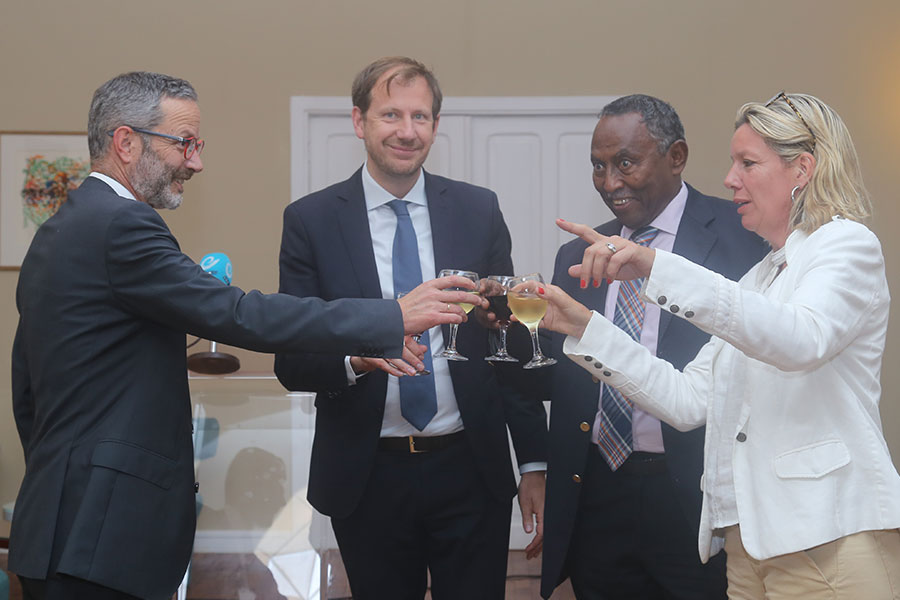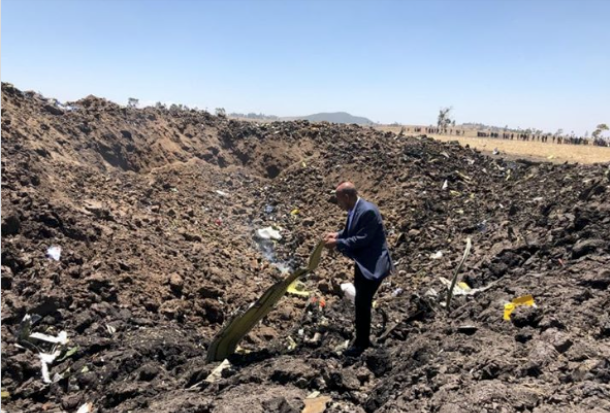
Viewpoints | Jan 07,2022
Jul 18 , 2020
By Habtamu Girma
Ethiopia deserves its fair share from the Nile River. This should go without saying. There are enough resources in the Nile for it to be possible for a collective benefit to be derived from it. However, the rhetoric from Egypt on the subject of the River and Ethiopia’s hydroelectric project on it, the Grand Ethiopian Renaissance Dam (GERD), is a digression from this view and unhelpful for cooperation in the region.
Today, Egypt is mobilising its propaganda machines for misdirection, threatening the interests of Nile Basin countries. Crucially, Egypt’s insistence on the hegemonic utilisation of the resources of the Nile is a threat to the development plan of Ethiopia.
As a result, Egypt’s action is turning the Nile River into a curse rather than a blessing against the Basin countries, despite the wider room for the Nile to be a source of collective benefit and well-being. This is not just an attack against Ethiopia but the record the country has been able to secure on the international stage.
An important element of the fabric of any state is that strength of a country emanates not from its might in terms of material abundance or military arsenals, but within the certain abstract foundations for the existence of the state itself.
In terms of international relations, the strength of Ethiopia is a deep-rooted moral and spiritual foundation of the state against oppression and injustices against black people. A glance into world history tells us that Ethiopians are indeed endowed with the spirit to fight injustices not just for their own causes but also for the causes of those that are oppressed.
Our historic resistance and triumph against outside influence is an important facet of this. Ethiopians were the only black people able to defeat a European colonising power, Italy. Even in the post-colonial era, the role of Ethiopia in realising a just global order has been remarkable. Worth mentioning in this regard is the support of Ethiopia for oppressed peoples in South Africa, under Apartheid, and in Rhodesia, now called Zimbabwe.
On such battle lines, the efforts of Ethiopians were impressive, not in the arms we possessed or the resources we had, but in the rightness of the causes. Crucial to these pieces of history was that Ethiopia was on the right side.
Today, when Ethiopia is facing unfair treatment against its sovereign right to develop and use its natural resources, it is all the more important for the outside world to realise where we are coming from.
History is a good reminder that a superior military force and economic output do not always lead to victory. Low-income countries, from Vietnam and Haiti to Ethiopia, have proved that the militarily and economically superior country can be defeated with a strong determination for freedom and sovereignty. To be on the right side of the argument is an additional advantage to this.
Here, unity is indispensable. Ethiopia is facing unfair treatment over the sovereign right of the use of the Nile water by the likes of Egypt, the United States and the World Bank. It is very hard to push back against this by being disorganised and without being able to stand united to defend what we believe to be right. Ethiopians have to optimise all the available means and tools at their disposal and voice out their concern in this regard.
We will only be able to prevail in this challenge if we show that not only are we on the right side of the argument but that we are willing to fight for it as well. Our messaging should be a recall of the narrative we built during the mid-1930s in the face of the Italian invasion, when we insisted that injustice anywhere is an injustice everywhere.
The GERD controversy is a reminder of yet another example of injustice against a sovereign country that is weak economically and has a black majority.
This time, hopefully, the world is not as naïve.
PUBLISHED ON
Jul 18,2020 [ VOL
21 , NO
1055]


Viewpoints | Jan 07,2022

Sunday with Eden | Jul 30,2022

Radar | Aug 13,2022

Viewpoints | Oct 30,2021

Commentaries | Mar 28,2020

Fortune News | Jun 17,2023

Commentaries | Dec 05,2018

Commentaries | Jun 22,2024

Fortune News | Mar 11,2019

Addis Fortune | May 07,2022

Photo Gallery | 178524 Views | May 06,2019

Photo Gallery | 168720 Views | Apr 26,2019

Photo Gallery | 159537 Views | Oct 06,2021

My Opinion | 137080 Views | Aug 14,2021
Commentaries | Oct 25,2025

Dec 22 , 2024 . By TIZITA SHEWAFERAW
Charged with transforming colossal state-owned enterprises into modern and competitiv...

Aug 18 , 2024 . By AKSAH ITALO
Although predictable Yonas Zerihun's job in the ride-hailing service is not immune to...

Jul 28 , 2024 . By TIZITA SHEWAFERAW
Unhabitual, perhaps too many, Samuel Gebreyohannes, 38, used to occasionally enjoy a couple of beers at breakfast. However, he recently swit...

Jul 13 , 2024 . By AKSAH ITALO
Investors who rely on tractors, trucks, and field vehicles for commuting, transporting commodities, and f...

Oct 25 , 2025
The regulatory machinery is on overdrive. In only two years, no fewer than 35 new pro...

Oct 18 , 2025
The political establishment, notably the ruling party and its top brass, has become p...

Oct 11 , 2025
Ladislas Farago, a roving Associated Press (AP) correspondent, arrived in Ethiopia in...

Oct 4 , 2025
Eyob Tekalegn (PhD) had been in the Governor's chair for only weeks when, on Septembe...

Oct 25 , 2025 . By YITBAREK GETACHEW
Officials of the Addis Abeba's Education Bureau have embarked on an ambitious experim...

Oct 26 , 2025 . By YITBAREK GETACHEW
The federal government is making a landmark shift in its investment incentive regime...

Oct 29 , 2025 . By NAHOM AYELE
The National Bank of Ethiopia (NBE) is preparing to issue a directive that will funda...

Oct 26 , 2025 . By SURAFEL MULUGETA
A community of booksellers shadowing the Ethiopian National Theatre has been jolted b...